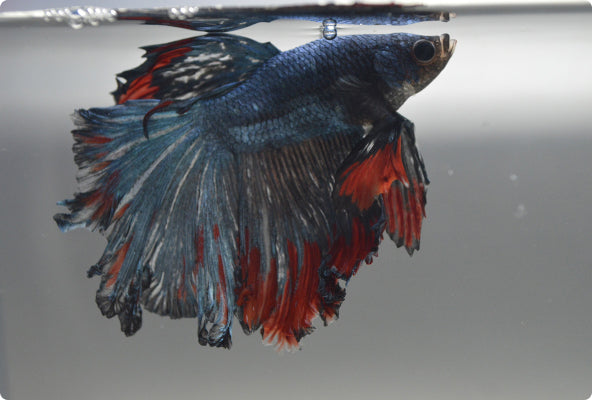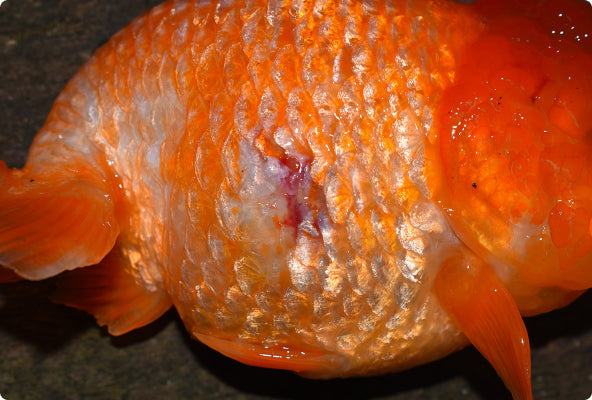
What Are Bacterial Infections?
Bacterial infections are caused by bacteria that enter the fish through open wounds or gills. The most common type of bacteria that affects freshwater fish is Columnaris, which is a gram-negative bacterium. This type of bacteria thrives in water with poor quality and can quickly spread to other fish in the tank.
Other Common Bacterial
Infections and Their Symptoms
- Finrot - This infection is often caused by poor water quality and will cause the fins and tail to become ragged and discolored. If left untreated, Finrot can spread to the body and gills, causing serious health problems for your fish.
- Vibrio - This bacteria is often found in saltwater and can cause serious health problems, including death, in freshwater fish. Symptoms include red lesions on the body, inflammation around the mouth and gills, and labored breathing.
- Mycobacteriosis - This infection is caused by a type of bacteria that is often found in freshwater fish tanks. Symptoms include lesions on the skin, fins, and mouth. Mycobacteriosis is a serious infection that can be fatal to fish.
- Aeromonas Hydrophila - This bacteria is commonly found in freshwater aquariums and can cause severe health problems in fish. Symptoms include red lesions on the body, fins, and mouth. This bacteria can also cause hemorrhages under the skin.
A complete guide to bacterial infections
What are they?
Bacterial infections are caused by bacteria that enter the fish through open wounds or gills.
Common types
- Columnaris
- Finrot
- Vibrio
- Mycobacteriosis
Common symptoms
- Inflammation
- Lesions
- Labored Breathing
Treatment steps
- Quarantine the sick fish
- Thoroughly clean tank or pond
- Medications or salt bath to kill the bacteria
Learn more about baterial infections that affect fish from iFISH Store - your #1 place for freshwater fish online!

Treating Bacterial Infections
The most common type of treatment for bacterial infections is antibiotics. Antibiotics can be administered through the water or by soaking their food with the medication. It is important to follow the instructions on the label carefully and to complete the entire course of treatment to ensure that the infection is completely eradicated. Another treatment option is a salt bath as it can help to kill many common bacterias that affect freshwater fish.
FAQs About Bacterial Infections
YES! It's important that if you see your fish acting lethargic, showing visible lesions, not eating, or other bacterial infection symptoms, act fast to have the best chance to save your fish friend.
Yes, bacterial infections can spread from fish to fish. This is why it is important to quarantine any fish that are showing signs of a bacterial infection and to treat them immediately to prevent the bacteria or infection from spreading.
There are a few things that you can do to help prevent your fish from getting a bacterial infection. First, be sure to maintain good water quality in your tank or pond. Second, avoid overfeeding your fish as this can lead to poor water quality and increase the risk of infection. Lastly, quarantine any new fish that you add to your tank for at least two weeks before adding them to the main tank. This will help to prevent the spread of any possible infections.